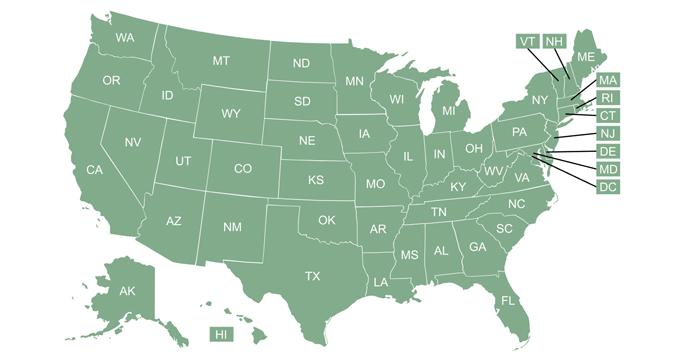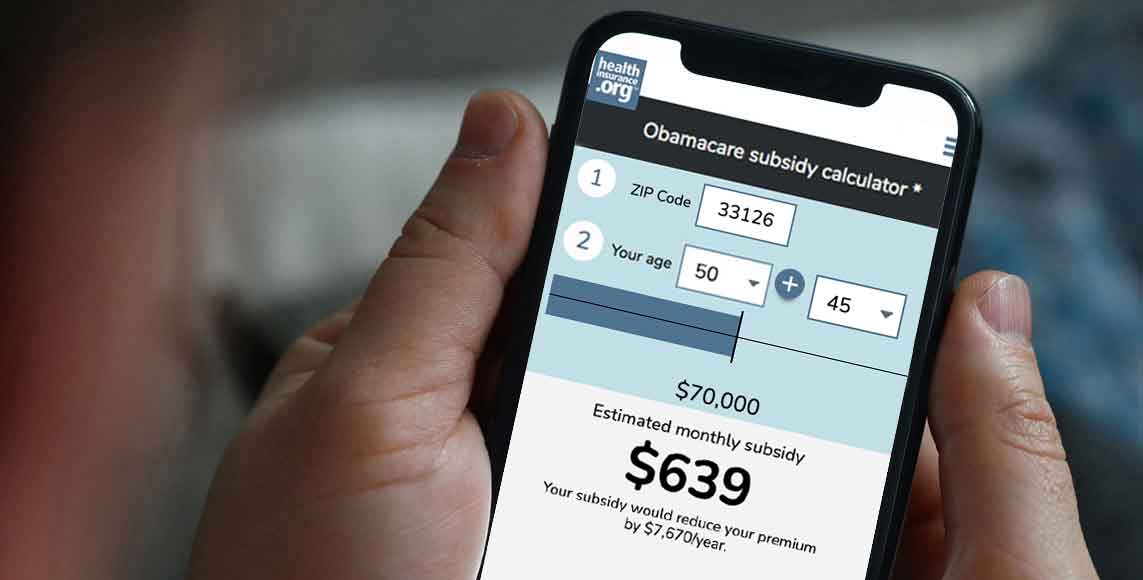
Q: What health insurance benefits are available to refugees and asylees arriving in the United States?
A: For refugees and people who have been granted asylum in the United States, there are fairly robust health coverage benefits available.
Depending on the person’s circumstances, the benefits may be provided via Medicaid or the Children’s Health Insurance Program (CHIP), the Refugee Medical Assistance program, or premium tax credits to offset the cost of coverage purchased in the marketplace. Let’s take a look at how each of these work:
Are refugees and asylum seekers eligible for Medicaid and/ or CHIP?
Most immigrants are ineligible for Medicaid or CHIP until they’ve been in the United States for five years. But that waiting period does not apply to refugees and asylees.
So if a refugee or someone granted asylum is eligible for Medicaid or CHIP based on the state’s regular income-based eligibility rules, they can enroll right away.
Most of the states have expanded Medicaid eligibility to cover adults age 19-64 with household income up to 138% of the poverty level (which amounts to $18,754 for a single person in 2022 in the continental U.S., and $44,809 for a household of five; the limits are higher in Alaska and Hawaii). And Medicaid/CHIP eligibility for children extends to higher income levels, varying by state. (Coverage for adult refugees and asylees with higher incomes is discussed below.)
In 11 states that have not expanded Medicaid, low-income adults are ineligible for Medicaid unless they have minor children, are pregnant, or are disabled. Refugees and asylees are eligible for Medicaid in these states if they fit the regular eligibility criteria that the states use. But if not, these refugees and asylees may be eligible for Refugee Medical Assistance and/or premium tax credits, both of which are described in more detail below.
Medicaid eligibility rules are more strict for people who are 65 or older, but the Refugee Medical Assistance program or premium tax credits in the marketplace may be available to older refugees and asylees.
What is the Refugee Medical Assistance program?
Refugee Medical Assistance (RMA) is a federal program that provides eight months of medical coverage to refugees and asylees who aren’t eligible for Medicaid. The coverage itself is essentially the same as Medicaid, as outlined in the applicable federal rules. In addition to the eight-month limit, RMA eligibility for refugees and asylees is also contingent on income.
- States can use an income limit up to 200% of the federal poverty level, or
- The same income guidelines that apply to medically needy Medicaid eligibility (in states that have medically needy programs), or
- The same income guidelines that apply to the Aid to Families with Dependent Children (AFDC) program.
Regardless of income, RMA coverage is available to refugees who have been in the U.S. for under eight months, were previously covered by Medicaid, and then lost Medicaid eligibility due to an increase in income.
CMS has published a fact sheet pertaining to health coverage options for Afghan refugees arriving in the U.S., which covers the specific options available depending on refugees’ immigrant visa status and state of residence. Although that document was published in response to the influx of Afghan refugees entering the U.S. in the fall of 2021, the various programs it outlines, including RMA coverage, are also available to refugees from other countries.
Can you receive premium tax credits and cost-sharing reductions if you've been granted asylum?
For refugees who aren’t eligible for Medicaid or RMA – or who have exhausted their RMA benefits – premium tax credits and cost-sharing reductions (CSR) can make private health insurance coverage much more affordable and more comprehensive than it would otherwise be.
The premium tax credits and CSR benefits are available via the marketplace/exchange as long as the applicant has a lawfully present immigration status (which includes refugees and asylees), isn’t eligible for affordable, comprehensive employer-sponsored insurance, and isn’t eligible for Medicaid or premium-free Medicare Part A.
Does the American Rescue Plan help refugees and asylees get health insurance?
The American Rescue Plan (ARP) has made premium tax credits larger and more widely available, which means refugees and asylees may find that they’re eligible for premium tax credits even if they’re earning a substantial income in the U.S. (This is true across the board, not just for immigrants.)
Under ARP rules, which are in effect until the end of 2022 (and possibly longer, if Congress extends them), the benchmark Silver plan is premium-free for exchange enrollees with income up to 150% of the poverty level. In other words, the premium tax credit pays the full cost of the benchmark plan (and any plans priced below the benchmark plan) for people whose income doesn’t exceed 150% of the poverty level. And for as long as these enhanced premium tax credits remain in place, there is also a year-round special enrollment period for people whose income doesn’t exceed 150% of the poverty level.
The premium tax credits are provided on a sliding scale, so they do get smaller as a person’s income increases. But even for those with the highest incomes, the tax credits are designed to ensure that the benchmark Silver plan doesn’t cost more than 8.5% of household income.
CSR benefits, which reduce out-of-pocket medical costs on Silver-level plans, are available to enrollees with income up to 250% of the poverty level, although the benefits are strongest for those with income up to 200% of the poverty level.
So although there is some state-level variation in terms of the specific health coverage benefits available to refugees and asylees, there are significant federal protections that exist in every state. They include the elimination of the five-year waiting period for Medicaid/CHIP eligibility, the existence of the RMA program, and the ACA/ARP subsidies to offset the cost of private coverage.
Louise Norris is an individual health insurance broker who has been writing about health insurance and health reform since 2006. She has written dozens of opinions and educational pieces about the Affordable Care Act for healthinsurance.org. Her state health exchange updates are regularly cited by media who cover health reform and by other health insurance experts.








